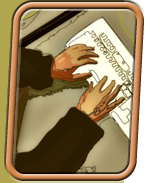|
|
||||||
|
|
|
|
||||
|
|
|
|
|
|
||
|
|
||||||
|
|
|
|
||||
|
|
|
|
||||
|
|
|
 |
|
|
|
|
|
|
|
|
|
|
|
|
|
|
|
|
|
|
|
|
|
|
|
|
|
Will the Japanese Join the Nuclear Club? The Baltimore Sun If promises are made to be broken, the world may one day hear a tell-tale crackle coming from Tokyo. That's because, recent assurances by Japanese Prime Minister Junichiro Koizumi notwithstanding, Japan — the world's only country to suffer nuclear attack — is debating the development of nuclear weapons. And the talk is getting louder. Never mind Mr. Koizumi's pledge, made on Aug. 9 in Nagasaki on the anniversary of the second atomic bomb, that Japan would "never change" its position on making or having nuclear armaments. An ever-defiant and nuclear weapons-seeking North Korea has changed the Northeast Asian security equation and may spur Tokyo into believing that its best defense is a good offense. Even if that means nukes. A lengthening string of statements by Japanese officials indicates as much. In 2002, Deputy Chief Cabinet Secretary Shinzo Abe said it was "not necessarily unconstitutional" for Japan to use small, tactical nuclear weapons to defend itself. Chief Cabinet Secretary Yasuo Fukuda said in the summer of 2002 that circumstances "could require Japan to possess nuclear weapons." Masashi Nishihara, the president of Japan's National Defense Academy, wrote in mid-August that successful moves by North Korea to obtain a "nonaggression pact" with the United States could lead to Japan justifying the development of a nuclear arsenal. Talk like that earned a former vice minister of defense, Shingo Nishimura, a pink slip in 1999. But no one's getting fired now. To be sure, the talk in Japan about nukes is just that: talk. And the bluster coming from these conservative politicians and Mr. Nishihara could be nothing more than verbal posturing. Or is it? The Japanese have every reason to worry about North Korea and to consider all the options. Clinton administration State Department official Philip Yun wrote in an article in May that the North's next generation of leaders is more isolated than its elders and thus could be even more threatening to the West. No doubt Pyongyang feels similar hostility, if not more, toward its erstwhile colonial master Japan, over which it fired a long-range ballistic missile in 1998. Add to all this a still-autocratic and paranoid China and a feeling among some Japanese analysts that the U.S. policy of taking on much of Japan's defense burden won't last indefinitely, and you get an increasingly dangerous neighborhood. One can imagine an Asian-style mutual assured destruction scenario if Pyongyang makes good on its nuclear ambitions and the Japanese follow — or pre-empt the North. Just before the six-party discussions about North Korea's weapons program in Beijing in August, a senior Japanese official asked James Kelly, the U.S. assistant secretary of state for East Asian and Pacific affairs, to keep America's "nuclear card" on the table at the talks. But clearly there's a certain willingness in Japan to bring its own trump to a future game. Mr. Koizumi is opening the door to a stronger Japanese military. On Aug. 25, he asked fellow Liberal Democratic Party members to draw up a blueprint for constitutional change by 2005, guaranteeing a debate on a fixture of postwar Japan: the "peace clause." Japan's Constitution — imposed by the United States after World War II — forbids war, though Tokyo maintains a hefty "self-defense force." At the United States' urging, Japan has beefed up its military since the 1950s, serving as Washington's partner in the Cold War and, lately, in a supporting role in Afghanistan. Tokyo may even dispatch troops for logistical support in Iraq. Moves by Japan's Defense Agency to introduce a ballistic missile defense system by 2006 proceed apace. If diplomacy with North Korea fails, which it might, can nuclear weapons be far behind? After all, they effectively shielded Japan's top ally, the United States, from the Soviet Union. Vice President Dick Cheney was right on the mark when he said in March that Pyongyang's yen for the bomb could set off a regional "arms race" and that "others, perhaps Japan, for example, may be forced to consider whether or not they want to readdress the nuclear question." Of course, anti-nuclear sentiment runs deep in Japan. The Japanese are still acutely conscious of their special victim status, and the cities of Hiroshima and Nagasaki stand as reminders of the horrors of the atomic age. Hence Mr. Koizumi's "never again" speech. But don't be surprised if the nuclear talk continues in Tokyo and if actions someday replace words. Memories can shorten when threats increase, and in Japan's case, events may yet conspire to make a liar out of the prime minister.
|